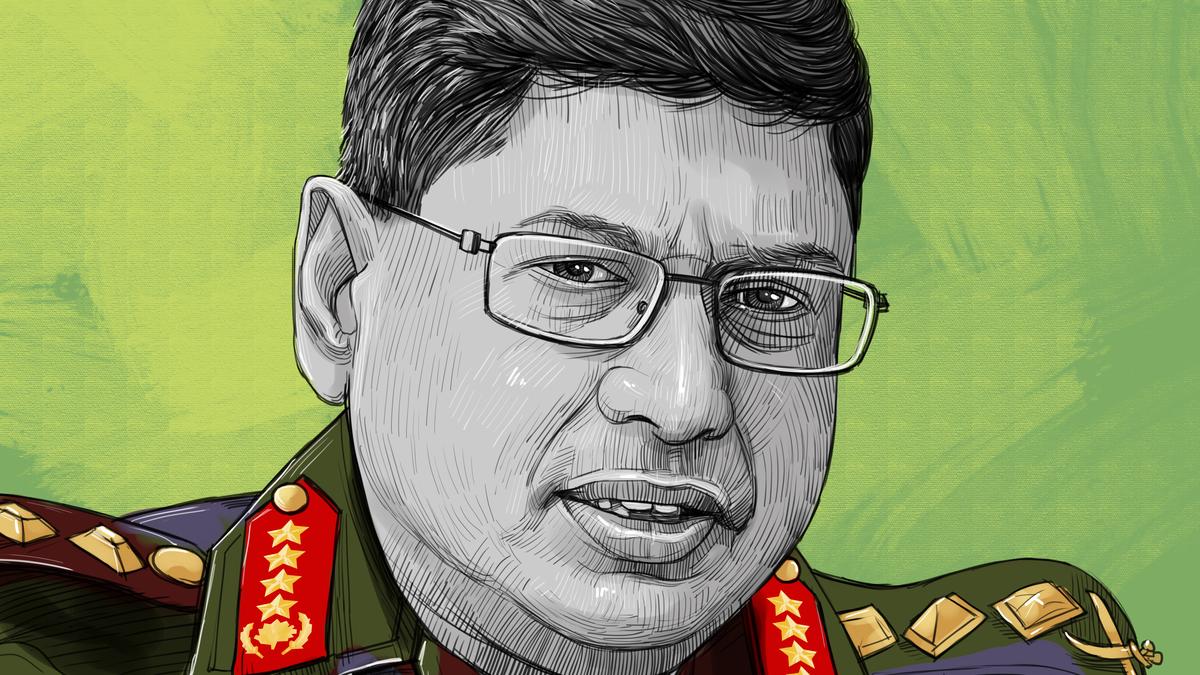The year 1985 was a difficult one in the chequered history of Bangladesh. It was a decade since the father of the nation, Sheikh Mujibur Rahman, was assassinated, and almost a decade and a half had passed since the deadly Cyclone ‘Bhola’ that devastated the country before it got independence from Pakistan. But despite the years, the country was not yet ready for another political or natural disaster. In the summer of 1985, a massive cyclone ripped through the coastal part of Bangladesh and left at least 11,000 people dead. It was in that dramatic condition of natural fury and the subsequent political breakdown that a young cadet, Waker-uz-Zaman, joined the infantry of Bangladesh. Nearly four decades later, as the head of the Army, Gen. Waker-uz-Zaman was thrown into the labyrinthine politics of Bangladesh on August 5, 2024.
It was a tense morning with families across the capital, Dhaka, stepping out for one last confrontation with Prime Minister Sheikh Hasina’s law and order machinery. Ms. Hasina led the government for a decade and a half with an iron hand. As teachers, students, lawyers and housewives bid goodbye to their families and started flooding the streets of Dhaka, there was anticipation of a bloodbath as the police and the military were expected to crush the uprising and enforce a lockdown that Ms. Hasina had ordered.
But by 11 am, it became clear that something had changed during the night and that the military had decided not to support the month-long crackdown that had left hundreds dead. As Ms. Hasina boarded a helicopter and flew out of the country, the systemic reflex action in Dhaka pushed Gen. Zaman to the forefront.
By afternoon, representatives of all the major political parties and civil society figures received an urgent call to converge under his leadership and have a discussion about the road ahead. By the evening, Bangladesh heaved a sigh of relief when Gen. Zaman held a press conference to announce that the military would hold the fort until a new interim government is formed.
The role of Gen. Zaman has been keenly watched from the beginning of the latest political turbulence that hit Bangladesh in July 2024 when the students took to the streets under the leadership of the Anti-Discrimination Student Movement (Boishommo Birodhi Chhatra Andolan).
The crackdown against the students-led uprising was led by the police and security forces, and the military, though at times accused of firing upon violent mobs, more or less kept away from the scenes of extreme violence. Daily Star reported that the night before the expected final showdown between the government and protesters, the military’s top officials met Gen. Zaman and decided that the military would not enforce the lockdown Ms. Hasina had ordered.
This was subsequently conveyed to Ms. Hasina, which meant that the Prime Minister no longer had the support of her military.
In charge of policing
The interim government under Nobel Peace Prize winner Muhammad Yunus, however, has been suffering from a congenital problem as it has failed to revive the police and the security forces whose credibility nosedived before the people as they were seen as complicit in the anti-student crackdown. Lack of effective policing has left the law and order in a fragile condition since the fall of Ms. Hasina, which prompted the military to take up magisterial power in the country on September 17, putting the Army effectively in charge of policing.
Ever since August, every action of Gen. Zaman has been minutely observed in the media. On January 2, he met former PM Khaleda Zia at her residence which triggered intense speculation about what he was up to next.
Starting with the infantry in 1985, Gen. Zaman grew to ultimately command the Infantry Battalion of Bangladesh. He was a distinguished instructor at the School of Infantry and Tactics, the Non-commissioned Officers’ Academy and the Bangladesh Institute of Peace Support Operations Training. He also served as the Military Secretary in the Army Headquarters and Principal Staff Officer under Prime Minister Hasina. He has experience of handling military operations, military intelligence and UN peacekeeping affairs of the Bangladesh Army.
What adds political context to Gen. Zaman is his background. The General is married to academic Sarahnaz Kamalika Zaman, the eldest daughter of late Gen. Muhammad Mustafizur Rahman, who served as the Army chief during Ms. Hasina’s first prime ministerial stint in the late 1990s. Gen. Rahman had married a cousin of Sheikh Mujibur Rahman. In that way, Gen. Zaman is a distant relative of Ms. Hasina.
This family link had come up for discussion among anti-Hasina forces when she was evacuated in a military aircraft. It was alleged that Gen. Zaman had saved Ms. Hasina from the wrath of the protesters because of family links. But the role of the military and his own position in the interim period became clear with an interview that Gen. Zaman gave to Prothom Alo on December 30. In the interview, he extended explicit support to the interim government but criticised the failures of the authorities in rebuilding the policing structure. “At the end of the day, it is my soldiers who have to take to the field. They have been five months in the field now,” he said. He toned down the anti-India rhetoric that had gone ballistic with strong speeches by the student leaders.
Targeting Constitution
The interview coincided with a dramatic declaration by several student-coordinators, including Hasnat Abdullah and Sarjis Alam of the Anti-Discrimination Student Movement, that they would “bury” the current Constitution in a massive rally at the Shaheed Minar on December 31. The interim government has already constituted several commissions for reforms, including one that is being led by Professor Ali Riaz of Illinois State University, for reform of the Constitution and it was felt that a public call for “burying” the Constitution by the students would unleash further chaos in the country.
On January 30, the interim government pledged to come out with its own “July Proclamation” that would lay down a roadmap for the future of Bangladesh. It was reported that the interim government’s initiative was prompted by Gen. Zaman and other members of the Bangladesh military who had expressed concern over the call to dismantle the Constitution. Student protest of December 31 fizzled out but the students have given a deadline of January 15 for the announcement of the “July Proclamation”.
The role of the Army chief is also important as the incoming Trump presidency in the U.S. is expected to create further problems for the unstable interim government as President Trump is a known critic of Mr. Yunus, who has not given a clear timeline for holding elections.
If Mr. Trump cold-shoulders the Yunus government, the most important player in Dhaka will be Gen. Zaman who has so far refrained from taking over direct power while effectively being in charge of law and order.
Published – January 05, 2025 01:13 am IST



